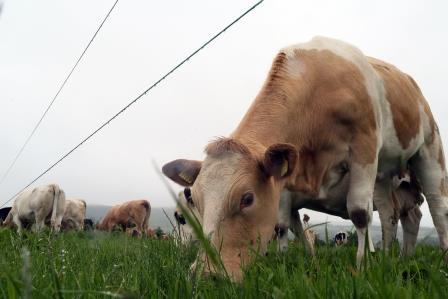
Tackling climate change is a top European Commission priority and as beef production generates six percent of all human-induced emissions, it’s a serious problem.
LIFE Beef Carbon aims to help farmers reduce the beef carbon footprint by 15 percent over 10 years in Ireland, France, Italy and Spain by sharing knowledge and best practice on farm efficiency.
The project includes Teagasc and Bord Bia from Ireland as partners.
Over the last 50 years, there has been a large increase in the volume of carbon in the atmosphere and there is concern that this is changing the climate and adversely affecting the economy and environment,” said Teagasc’s Donal O’Brien.
Most emissions are generated from biological farming sources such as soils and animals. Nevertheless, it is possible to cut beef’s carbon footprint by improving efficiencies, using low emission technology and building soil carbon.
The innovative farmers of LIFE Beef Carbon are testing the impact of these recommended strategies on a voluntary basis and have already seen some carbon footprint improvements.
New agriculture techniques that reduce gas emissions are emerging, but it’s difficult for farmers to measure the carbon footprint on their farm to see where they can use these techniques to become more carbon efficient.
The Beef Carbon Navigator, developed by Teagasc and Bord Bia, is helping to address this. Already used on over 50,000 Irish beef farms, it captures the carbon footprint of farms by regularly measuring key efficiency areas like slurry management.
By setting targets in these key areas, farmers can see exactly where environmental gains can be achieved.
The Navigator will also help in the development of an action plan that will eventually pave the way to lowering the beef carbon footprint.
- Project duration
- 1 Jan 2016 - 31 Dec 2020
- Project locations
- Co. Carlow, IrelandFranceItalySpain
- Overall budget
- €5 460 510
- EU contribution
- €3 276 30060% of the overall budget
- Project website
- Life Beef Carbon project overview
Stakeholders
Coordinators
EU Life Programme
Participants
Teagasc
- Website
- https://www.teagasc.ie/
Bord Bia
- Website
- https://www.bordbia.ie/
